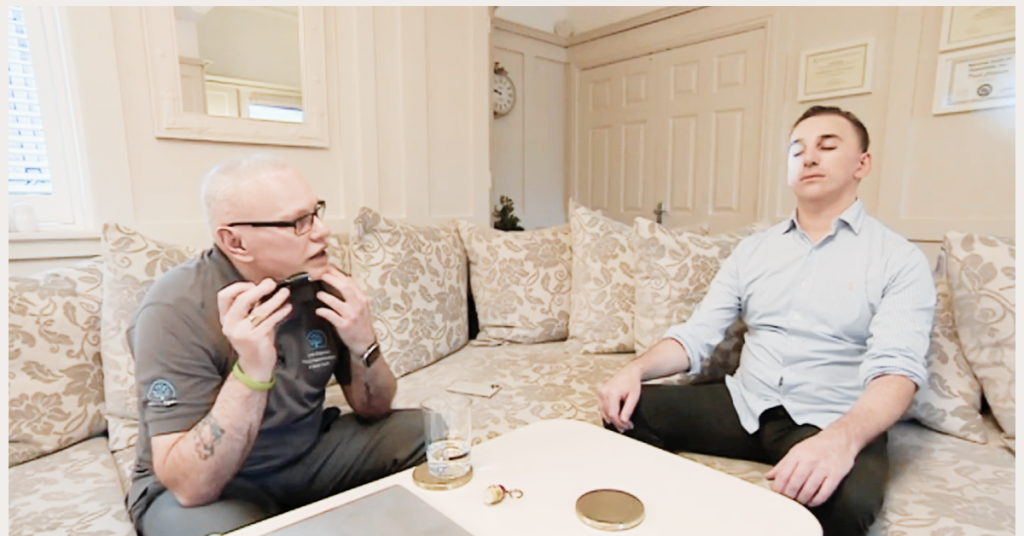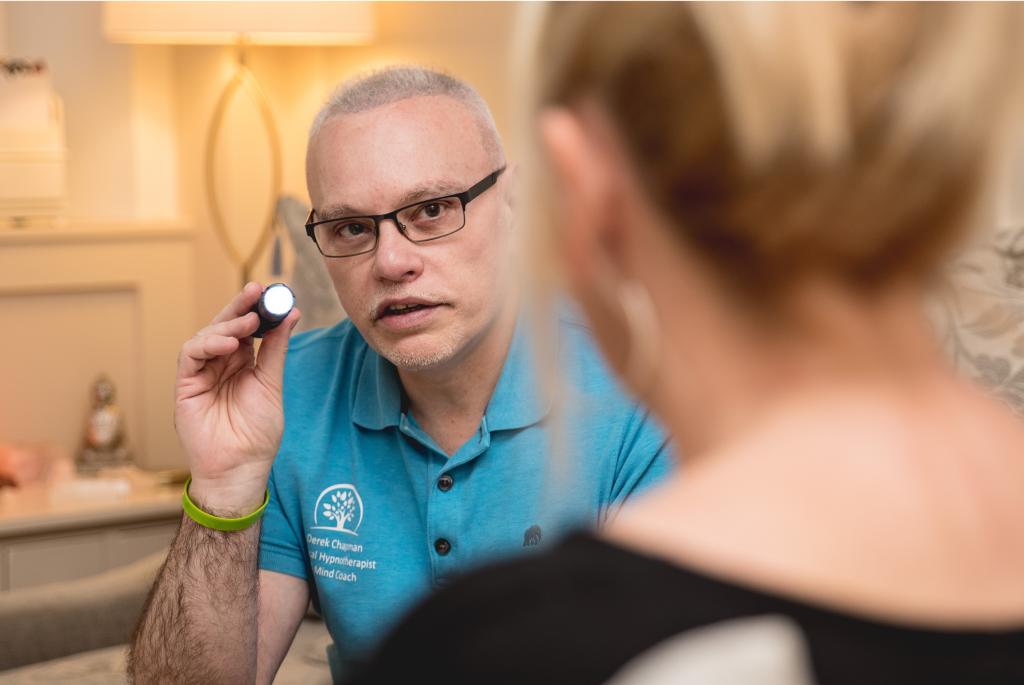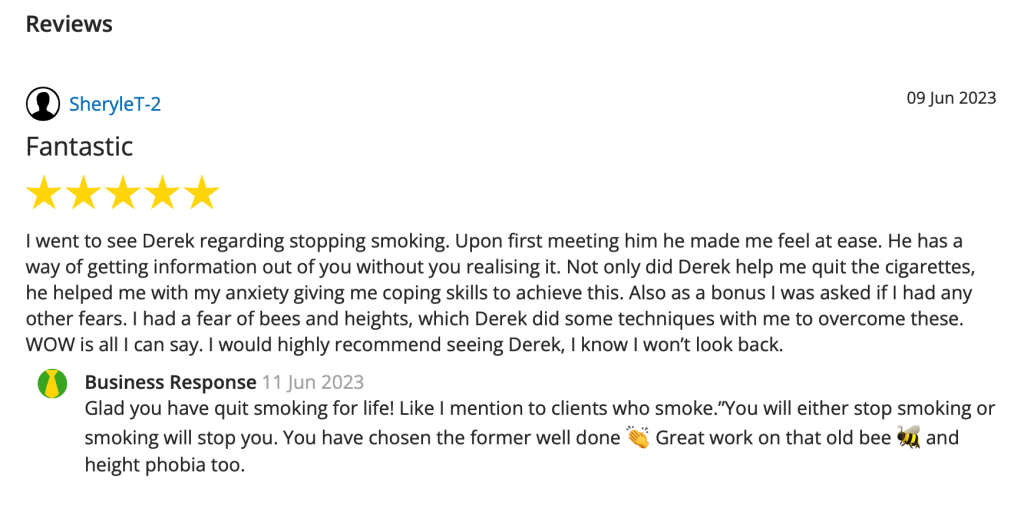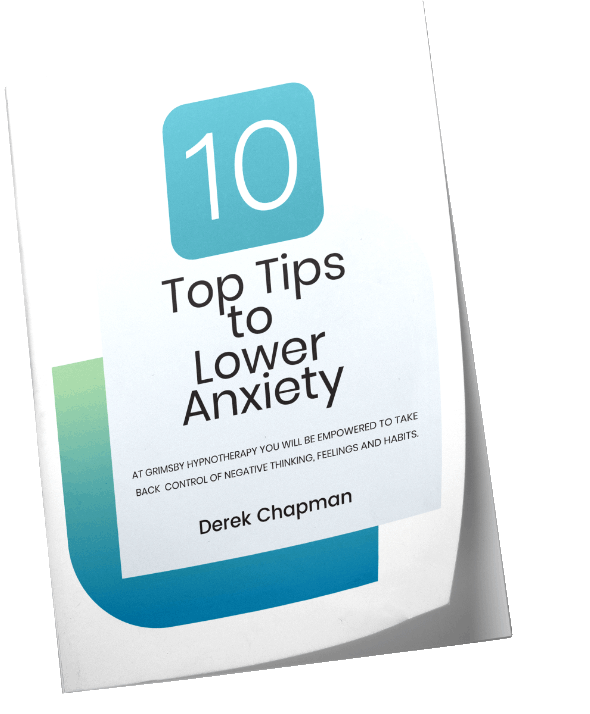
In our modern, fast-paced world, anxiety has become a widespread problem affecting millions of people globally. The constant pressure, uncertainties, and overwhelming responsibilities often lead to feelings of dread, stress, and anxiety. While numerous approaches exist to manage anxiety, one increasingly popular method is hypnosis.
In this blog, we will delve into the concept of anxiety, understand how hypnosis works, explore its effectiveness as a solution, and provide insights into how hypnosis can help individuals overcome anxiety and achieve a more balanced and tranquil state of mind.
Once a solution for anxiety is found the need for addiction becomes redundant.
Anxiety is a natural human response to stress, triggering a “fight-or-flight” reaction when faced with challenging situations. However, anxiety can become chronic or excessive, it can impact daily life, relationships, and overall well-being. Symptoms may range from restlessness, irritability, and difficulty concentrating to rapid heartbeat, shortness of breath, and panic attacks. Traditional treatment approaches such as therapy and medication may be effective, but they may not suit everyone. This is where hypnotherapy comes into the picture as a complementary alternative therapy.
The National Institute of Mental Health (NIMH) – NIMH offers extensive research and educational materials on various mental health conditions, including anxiety. https://www.nimh.nih.gov/health/topics/anxiety-disorders/index.shtml
Hypnosis is not just relaxation, the by-product of Hypnosis is relaxation, for people to go into Hypnosis, they have to have an above-average intelligence. Contrary to common misconceptions, hypnosis is not about lack of control, but rather giving you back control over the areas of your life you currently do not have control over, whether that be Anxiety or Addiction. To simplify, Hypnosis is focusing on one idea, to the exclusion of everything else.
For example, how many times have you experienced fears like heights, flying on an aircraft, or big hairy spiders, you have focussed on that one idea to the exclusion of everything else. When we imagine the worse case scenarios. In other words, we hypnotise ourselves by creating a future that hasn’t even happened!

Numerous studies have shown the efficacy of hypnosis as a powerful tool in addressing anxiety addictions and phobias. Hypnosis helps reframe thoughts, can promote relaxation, and instill positive suggestions and coping mechanisms. Furthermore, hypnosis can also target specific anxiety-related symptoms like phobias or social anxiety, enabling individuals to confront and overcome their fears more effectively. Unlike some therapies which can re-traumatise highly sensitive individuals, Hypnotherapy uses the client’s own resources, that way they feel empowered dealing with life.
Here is an article on how to break free from Anxiety.
Hypnosis offers several therapeutic approaches for individuals seeking relief from anxiety. By working with a trained hypnotherapist, individuals can gain insights into their thought processes, challenge distorted thinking, and develop healthier perspectives.
Another technique is visualisation, where individuals create vivid mental images of themselves managing anxiety-inducing situations with ease and confidence. This technique helps individuals rewire their minds by replacing anxiety-driven thoughts with positive, empowering ones. Through repeated visualisation exercises, individuals can enhance their self-belief and resilience, ultimately reducing anxiety levels.
Self-hypnosis is another valuable tool that empowers individuals to practice relaxation techniques independently. By learning self-hypnosis, individuals can access a state of deep relaxation at any time, helping them deal with anxiety and addiction symptoms.
Through self-hypnosis, individuals can cultivate a sense of inner calm and develop effective strategies for navigating anxiety-inducing situations.
You can find further information on how to reduce alcohol

Final Word
Anxiety and Addiction are debilitating conditions, but there are effective solutions available. Hypnosis and mind coaching offer a unique approach to alleviating symptoms by targeting underlying causes. By embracing these complementary therapies, individuals can reclaim control over anxiety and addiction by embarking on a path toward greater peace and well-being.


Book your initial consultation with Derek to find out how he can help you.
www.grimsbyhypnotherapy.co.uk trading as dcmindcoach.com Ltd All Rights Reserved | Cookies
| Cookie | Duration | Description |
|---|---|---|
| cookielawinfo-checkbox-advertisement | 1 year | Set by the GDPR Cookie Consent plugin, this cookie is used to record the user consent for the cookies in the "Advertisement" category . |
| cookielawinfo-checkbox-analytics | 11 months | This cookie is set by GDPR Cookie Consent plugin. The cookie is used to store the user consent for the cookies in the category "Analytics". |
| cookielawinfo-checkbox-functional | 11 months | The cookie is set by GDPR cookie consent to record the user consent for the cookies in the category "Functional". |
| cookielawinfo-checkbox-necessary | 11 months | This cookie is set by GDPR Cookie Consent plugin. The cookies is used to store the user consent for the cookies in the category "Necessary". |
| cookielawinfo-checkbox-others | 11 months | This cookie is set by GDPR Cookie Consent plugin. The cookie is used to store the user consent for the cookies in the category "Other. |
| cookielawinfo-checkbox-performance | 11 months | This cookie is set by GDPR Cookie Consent plugin. The cookie is used to store the user consent for the cookies in the category "Performance". |
| CookieLawInfoConsent | 1 year | Records the default button state of the corresponding category & the status of CCPA. It works only in coordination with the primary cookie. |
| elementor | never | This cookie is used by the website's WordPress theme. It allows the website owner to implement or change the website's content in real-time. |
| viewed_cookie_policy | 11 months | The cookie is set by the GDPR Cookie Consent plugin and is used to store whether or not user has consented to the use of cookies. It does not store any personal data. |
| Cookie | Duration | Description |
|---|---|---|
| CONSENT | 2 years | YouTube sets this cookie via embedded youtube-videos and registers anonymous statistical data. |
| Cookie | Duration | Description |
|---|---|---|
| VISITOR_INFO1_LIVE | 5 months 27 days | A cookie set by YouTube to measure bandwidth that determines whether the user gets the new or old player interface. |
| YSC | session | YSC cookie is set by Youtube and is used to track the views of embedded videos on Youtube pages. |